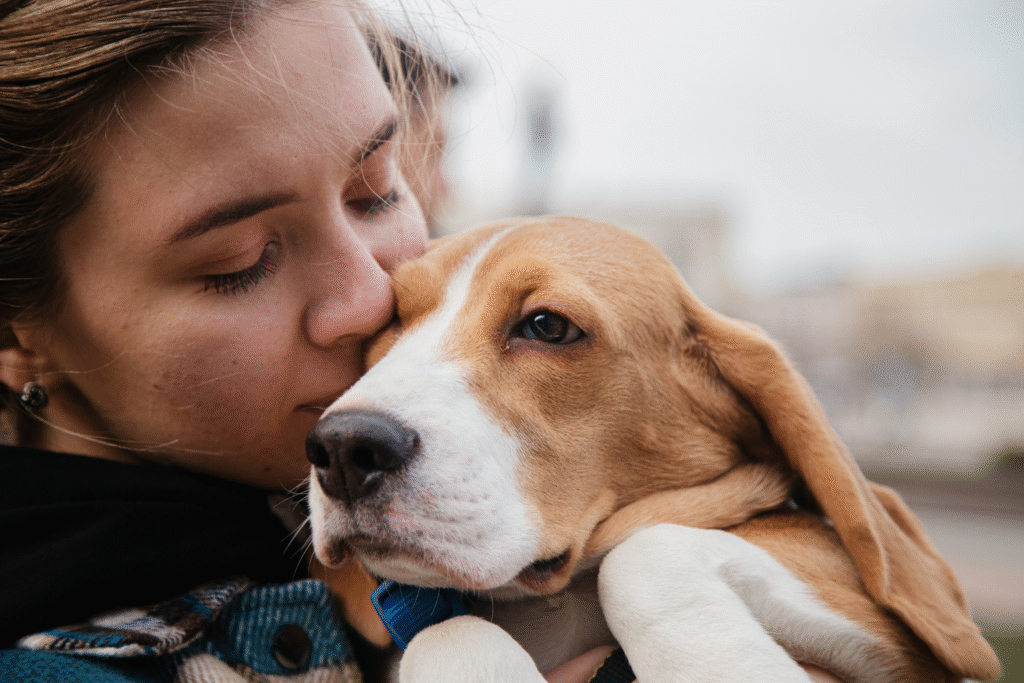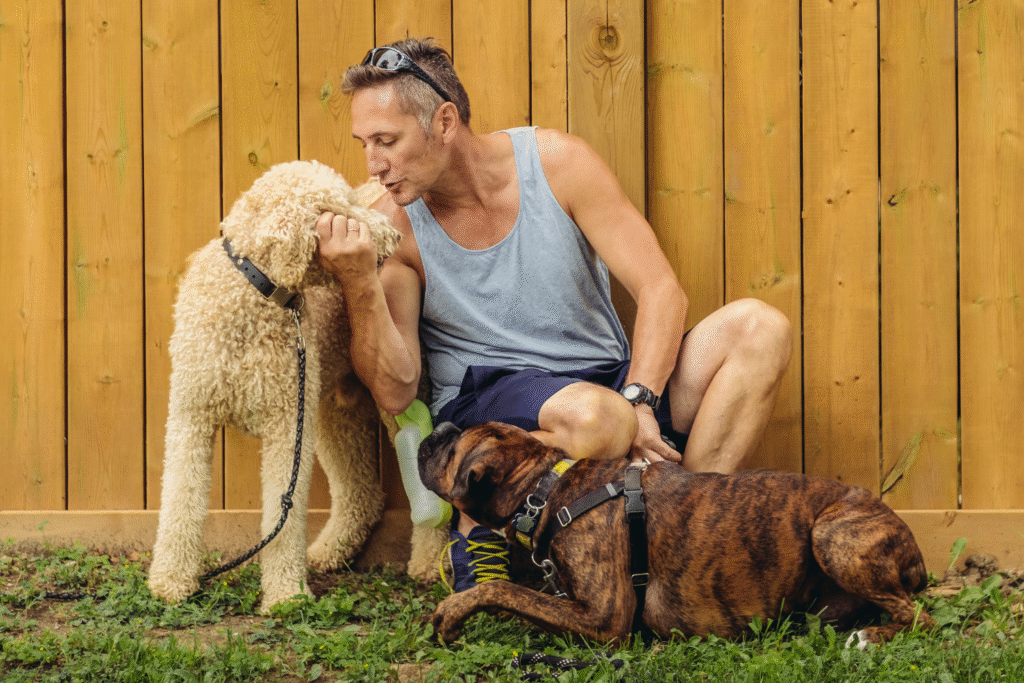These actions can shatter years of trust faster than any abuse or neglect ever could.

Dogs forgive almost everything – forgotten walks, occasional harsh words, even accidental injuries – but there’s one betrayal that cuts so deep it can permanently alter your relationship in ways that shock even experienced dog owners. Unlike physical mistreatment or neglect, which dogs often overcome with time and patience, this particular breach of trust strikes at the very core of what makes dogs such devoted companions. Once it happens, many dogs never fully recover their faith in their humans.
1. Veterinary betrayal creates trauma that lasts for years.

According to research published by the American Veterinary Medical Association, dogs who experience restraint-based veterinary procedures without adequate sedation or pain management often develop lasting anxiety disorders that extend far beyond medical settings. The combination of physical restraint, pain, and the presence of their trusted human during traumatic procedures creates complex psychological damage that traditional training methods struggle to address. Dogs don’t understand that medical procedures are necessary – they only know that their person allowed strangers to hurt them.
This type of trauma manifests differently than fear-based aggression or general anxiety because it specifically targets the human-dog bond rather than creating broad behavioral problems. Dogs may continue to love their families while simultaneously losing the deep trust that once made them feel completely safe. The recovery process requires rebuilding faith from scratch, often taking months or years of consistent positive experiences to overcome a single traumatic veterinary encounter.
2. Broken promises during emergencies teach dogs that humans lie.

Emergency situations reveal character in ways that routine daily life never does, and dogs pay attention to these moments with startling clarity. When owners promise their dogs that everything will be okay during scary situations like storms, fireworks, or medical procedures, then fail to protect them from the very things they promised wouldn’t happen, dogs learn that human reassurances mean nothing. Studies conducted by animal behaviorists at Colorado State University show that dogs can distinguish between genuine comfort and empty promises during high-stress situations, according to findings published in Applied Animal Behaviour Science.
The devastating impact of broken emergency promises stems from dogs’ complete dependence on their humans for safety and security. Unlike wild animals who rely on their own instincts and abilities, domestic dogs surrender their natural defenses in exchange for human protection. When that protection fails during their most vulnerable moments, the psychological damage can be profound and lasting. Many dogs become hypervigilant and stop seeking comfort from their humans during stressful situations, having learned that human promises provide false security.
3. Abandonment without explanation destroys their understanding of permanence.

Veterinary behaviorist Dr. Karen Overall from the University of Pennsylvania reports that dogs who experience sudden abandonment – whether through surrender, rehoming, or extended boarding without preparation – often develop attachment disorders that persist even in loving new homes. Unlike gradual transitions that allow dogs to process change, sudden disappearances from their lives shatter their fundamental belief in relationship permanence. Dogs lack the cognitive ability to understand human explanations for abandonment, interpreting sudden separations as complete rejection.
The psychological aftermath of abandonment creates dogs who may love their new families while remaining perpetually anxious about losing them again. This chronic insecurity affects every aspect of their behavior, from separation anxiety to resource guarding to difficulty forming deep bonds with new humans. Even dogs who appear to recover fully often retain subtle signs of abandonment trauma that surface during stressful situations or major life changes.
4. Physical punishment during vulnerable moments shatters their sense of safety.

Dogs who experience physical correction while sleeping, eating, injured, or otherwise vulnerable often develop complex trauma responses that go far beyond simple fear of punishment. These moments represent times when dogs lower their natural defenses and trust their humans completely, making any betrayal during these periods particularly devastating. The shock of unexpected pain from a trusted source creates psychological wounds that affect their ability to relax or feel secure in any situation.
Unlike punishment during training or correction for specific behaviors, violence during vulnerable moments teaches dogs that safety is an illusion and that their humans are fundamentally unpredictable. This realization changes everything about how dogs approach relationships, making them hypervigilant and unable to achieve the deep relaxation that characterizes truly bonded dogs. The damage often proves irreversible because it attacks the foundation of trust rather than specific behavioral patterns.
5. Choosing strangers over them during conflicts creates lasting resentment.

Dogs pay incredibly close attention to loyalty dynamics and notice when their humans consistently side with strangers, other pets, or family members during disputes or conflicts. While dogs understand hierarchies and accept that they’re not always the priority, consistently choosing others over them during important moments teaches them that their relationship ranks lower than they believed. This realization fundamentally alters how they view their place in their human’s life.
The cumulative effect of repeated loyalty betrayals often results in dogs who become emotionally distant and self-protective rather than seeking comfort and connection from their humans. They learn to expect disappointment and stop investing emotionally in relationships that repeatedly prove unreliable. This emotional withdrawal can be more damaging than aggressive responses because it represents a conscious decision to protect themselves by caring less.
6. Ignoring their desperate attempts to communicate pain creates profound isolation.

Dogs who repeatedly try to communicate illness, injury, or distress to humans who dismiss their signals often develop learned helplessness that extends far beyond the original medical issue. When dogs learn that their attempts to seek help are ignored or misinterpreted, they stop trying to communicate their needs and suffer in silence. This breakdown in communication damages the relationship at its most fundamental level.
The psychological impact of unheard distress calls teaches dogs that their humans either don’t care about their suffering or are incapable of providing help when it’s needed most. Either conclusion proves devastating to the trust that forms the foundation of human-dog relationships. Dogs who experience this type of communication failure often become withdrawn and stop seeking human assistance for any problems, preferring to handle difficulties alone rather than risk further disappointment.
7. Using their deepest fears against them proves humans can’t be trusted.

Dogs who have their specific phobias or trauma triggers deliberately exploited by their humans experience a unique form of betrayal that cuts deeper than random cruelty. When humans use knowledge of their dog’s worst fears as tools for punishment or control, it teaches dogs that vulnerability and trust are weapons that will be turned against them. This realization fundamentally changes how dogs approach emotional intimacy.
The recovery from this type of betrayal proves particularly difficult because it requires dogs to simultaneously overcome their original trauma while rebuilding trust in humans who have proven themselves capable of weaponizing that trauma. Many dogs never fully recover their willingness to be vulnerable with humans again, maintaining emotional distance as protection against future exploitation of their weaknesses and fears.
8. Failing to protect them from other animals teaches them they’re expendable.

Dogs who are attacked, bullied, or threatened by other animals while their humans stand by passively often lose faith in their human’s ability or willingness to provide protection. Unlike situations where humans are genuinely unable to help, passive observation during animal conflicts teaches dogs that their safety isn’t worth defending. This lesson proves particularly devastating because protection is one of the fundamental promises of domestication.
The aftermath of failed protection during animal conflicts often creates dogs who become overly defensive and stop relying on their humans for security during threatening situations. They learn to handle threats alone rather than expecting backup from their human partners. This self-reliance might seem positive but actually represents a breakdown in the cooperative relationship that defines healthy human-dog bonds.

37hea4